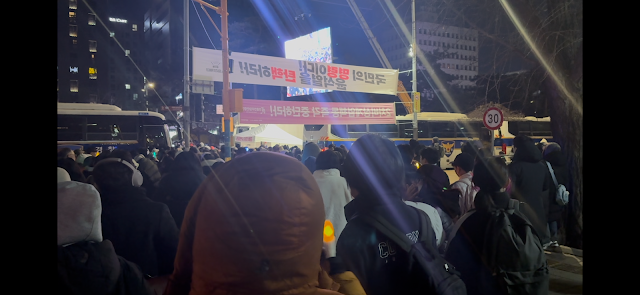The failed attempt by South Korean President Yoon Suk Yeol to impose martial law has created a seismic political and economic crisis. While the National Assembly swiftly overturned the decree, the incident exposed vulnerabilities in democratic governance and triggered a ripple effect on the economy and international relations. With allies raising concerns and markets showing volatility, the path forward demands decisive leadership to restore stability and confidence.
South Korea’s Constitutional Crisis: Martial Law Fallout and Future Challenges
South Korea Faces Unprecedented Political Turmoil
The declaration of martial law by President Yoon Suk Yeol on December 3, 2024, sent shockwaves across the nation and beyond. Though overturned within six hours by the National Assembly, the move sparked fear, outrage, and global criticism. Armed forces stormed the National Assembly, arresting legislators and halting legislative activities—a direct assault on the essence of democracy.
Public outcry was swift. Citizens braved military intervention, and opposition lawmakers defied threats to ensure the Assembly voted down the martial law decree. While this historic act demonstrated the resilience of South Korea’s democratic institutions, it also underscored the fragility of the current political climate.
Economic Aftershocks and Diplomatic Fallout
The political crisis has deeply unsettled South Korea’s economy. Stock markets dropped by over 2%, and the won plunged against the dollar. Fears of foreign capital withdrawal were only partially eased by the government’s emergency stabilizing measures. Economic uncertainty looms as global credit agencies caution about the long-term consequences of political instability.
The diplomatic repercussions have been equally severe. Postponements of key summits, including a U.S.-South Korea nuclear consultative meeting, highlight international concerns. Japan and Sweden have scaled back diplomatic engagements, citing South Korea’s unstable environment. Even the United States, a critical ally, criticized the lack of transparency, straining bilateral ties further.
The Road Ahead: A Call for Leadership
As North Korea’s threats intensify and regional tensions rise, South Korea’s political and economic resilience faces its sternest test. Immediate restoration of trust in governance is imperative. Leadership must prioritize healing domestic divisions, strengthening alliances, and safeguarding the economy to restore South Korea’s standing on the global stage.
The only viable solution seems for Yoon Suk Yeol to step down voluntarily or face a legitimate impeachment vote in the National Assembly to suspend his duties swiftly. As public demand for accountability grows louder with each passing day, even ruling party lawmakers may find themselves compelled to yield to the overwhelming pressure of the people. Restoring stability and public trust now hinges on decisive action that respects the will of the citizens and the principles of democracy.
#SouthKorea #MartialLaw #PoliticalCrisis #EconomicInstability #GlobalRelations #Democracy #NationalAssembly #AsiaPolitics #Geopolitics #EconomicFallout
